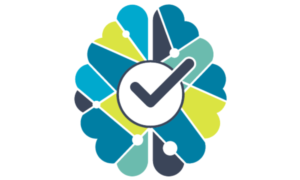How you can Protect your Brain Health Today & in the Future
Stacey J. Drubner, JD, LICSW, MPH

EAP Ask the Expert: Jonathan Rosand, MD, MSC, Neurologist & Co-Founder, McCance Center for Brain Health, Massachusetts General Hospital
It is commonly understood that we can prevent some instances of medical conditions related to heart disease, diabetes, or cancer. Did you know that we can also take measures to avoid many brain diseases?
This is good news because the brain is responsible for directing everything we do:
- Managing decisions and choices
- Walking up stairs
- Interacting with people
- Responding to positive and negative circumstances
Brain diseases are common and have a big impact on individuals, families, and society. They can disrupt life, affect happiness and result in poor health outcomes and high costs. Three of the most prevalent categories are:
Stroke – As many as 80% are preventable
- The CDC reports that almost 800,000 people in the US suffer a stroke every year
- Strokes are the leading cost of long-term disability
- Costs in 2017-2018 came to nearly $53 billion
Dementia – 40% of cases are preventable
- According to the Alzheimer’s Association, approximately 10.7% of Americans over 65 have Alzheimer’s
- More people will die from dementia than breast cancer and prostate cancer combined
- This year, dementia will cost $345 billion
Depression – 25-50% of new episodes of major depressive disorder (MDD) can be prevented
- PharmacoEconomics reports that between 2005 and 2018, the number of adults in the US diagnosed with MDD increased from 6.8 to 7.1%
- Costs of MDD in adults rose from $236.6 billion in 2010 to $326.2 billion in 2018

Our expert for this month’s feature, Dr. Jonathan Rosand, from the MGH McCance Center introduces us to the concept of brain care and how it can help us stay healthy, making it much less likely that we will have a stroke or develop dementia as we get older.
“How can I take good care of my brain?” is a question that Dr. Rosand and his colleagues receive quite often. To answer that question, they developed the McCance Center Brain Score Card & Worksheet.
Components of Brain Care
Understanding the factors that go into preserving brain function is an important step towards preventing the conditions that can compromise it as we get older. These can be broken down into two categories – healthcare steps you can take and lifestyle choices you can make. These categories are connected to and feed off each other.
Your Healthcare

There are several medical conditions that can harm your brain. The good news is that keeping them in check is not only a core component of brain care, but also a goal you can reach.
Hypertension
Hypertension or high blood pressure develops when blood flows through your arteries at higher-than-normal pressures. Blood pressure may increase with age. If pressure remains high, it can negatively affect the whole body, particularly the heart, kidneys, and brain (leading to stroke and dementia). Lowering blood pressure by even a few points – millimeters of mercury (mm)) – can make a big difference.
Diabetes
Diabetes is a disease that occurs when your blood glucose (blood sugar) is too high. Uncontrolled diabetes can lead to many medical problems, including cardiac issues, vision problems, kidney function and stroke.
High Cholesterol
Cholesterol is a substance in your blood that your body needs for good health, but in appropriate amounts. Unhealthy (high) and untreated levels of cholesterol can lead to heart and stroke issues.
Managing Medical Conditions for Better Brain Care
A combination of interventions can be used to regulate and maintain the conditions discussed above. Everyone has a unique health history/baseline, challenges, and goals, that require a tailored plan for improvement. Some options include:
- Consultation with providers
- Regular monitoring
- Medications
– Dr. Rosand indicates that reluctance to use safe and effective medications when warranted can interfere with taking good care of your brain. Many people are more willing to take vitamins or supplements, which are much less studied or regulated
– Focus on what requires priority attention and has proven benefits - Making lifestyle changes (outlined in detail below)
Lifestyle Indicators
Lifestyle changes can be made in or outside of the medical setting and can protect your brain over time. How you adjust your lifestyle will depend on your needs, capabilities, and health challenges. Remember, taking one step at a time is often a successful approach.
The McCance Center uses the “SHIELD” acronym to identify lifestyle areas for consideration:
Sleep Better
Healthy sleep is defined as having regular high-quality sleep. Many people find this challenging. Cumulative poor sleep is a risk factor for brain diseases, such as Alzheimer’s, stroke, or depression. The EAP website has information and tips on improving sleep.
Handle Stress

Prolonged stress and anxiety can lead to an increased level of inflammation and leave the body’s response system in a heighted state. Inflammation can negatively impact brain cells and is considered a risk factor for Alzheimer’s. Acknowledging anxiety and eliminating this barrier can lead to better health through:
Interact with Friends
Research shows that social connections have widespread benefits for mental and physical well-being. Making and keeping connections can have significant impacts on brain health. If you are isolated, consider some options for increasing social connection:
- Reach out to family or friends and let them know you need support
- Join a group or religious organization with interests that are common to yours
– Meet-Up – Connect to Make Friends with Shared Interests - Volunteer
– Boston Cares
– Volunteer Match
– Community Servings - Get a Pet
Exercise

Physical activity has multiple health benefits and can help with managing stress, anxiety, sleep, blood pressure and brain health. Dr. Rosand recommends a combination of cardio, weights, stretching, and yoga.
Here are some ideas to help get you started:
Learn New Things
Keeping engaged mentally with activities that you enjoy and stimulate your mind can be helpful in providing social outlets and opportunities for stress reduction. To date, the evidence does not show a clear benefit from games, such as Luminosity, on brain health. However, Dr. Rosand suggests that there is no downside to puzzles and games (Wordle, Sudoku). Considering the uncertain benefits, you may want to skip the expensive programs and avoid gimmicks, in favor of something more affordable, like Staying Sharp from AARP.
Diet
Healthy eating, like the Mediterranean diet (fruits, vegetable, lean protein) can have a positive impact on cardiac disease and overall mortality. It is advisable to limit alcohol and tobacco use due to widespread effects on health. Here are some healthy eating resources from the EAP.
Getting Started on Your Brain Care Journey

It might seem like achieving brain health might require a lot of work. Not if you approach change in increments, rather than addressing everything at once. The best path is to assess what is working well or might need some adjustment. Build a plan from there.
- Start with the McCance Center Brain Score Card & Worksheet, which includes both health and lifestyle indicators. This can be revisited over time, particularly when you want to measure your progress in a specific area or have a change in health status
- Discuss your plan and any concerns with your PCP
- Dr. Rosand suggests beginning in early adulthood but it’s never too late to address brain care
- Choose one thing that you have motivation to change, like a health issue
– Over time you can add new areas for improvement - Our EAP feature on building healthy habits offers some guidance on making change
- Be realistic and be kind to yourself. Real change takes time
- Strive for brain care and brain health that is a match for you and your circumstances
– Don’t focus on an unattainable state of perfection
– Even those with brain disease can achieve an optimal level of brain health
Cognitive Testing
If you have no current, identified issues, general cognitive testing is not necessary to get a baseline of how your brain is working. It can be expensive and time-consuming. You and your physician can consider cognitive testing if you both have concerns about your functioning.
Dr. Rosand offers that it’s most productive to focus is on how you feel, how you live your life and how you can maintain satisfying relationships with those whom you work, live and share friendship.
About the McCance Center for Brain Health, MGH
The McCance Center’s mission is to maximize human potential through better brain health. They strive to identify and study the indicators of brain health, to discover and develop the interventions that prevent brain disease, and to convene a borderless community of knowledge and tools essential for implementing and integrating these indicators and interventions into primary care.
Help from the EAP
The EAP offers free and confidential services for employees and immediate household family members. EAP records are separate from medical and HR records. Contact the EAP at 866-724-4327 or request an appointment via our online form for confidential assistance. In-person appointments are available at the following locations. Phone or Video (Zoom) appointments are available from all locations.







